Myott
Vintage Teapot Indian Tree - Myott - 1940s
Vintage Teapot Indian Tree - Myott - 1940s
Couldn't load pickup availability
Step back in time with this gorgeous vintage Indian Tree Teapot by Myott, Son & Co. Made in Staffordshire, England, this teapot showcases the Indian Tree pattern—a design rich in tradition and character. Known for its intricate floral detailing and vibrant colours, this pattern is one of Myotts most celebrated designs, adding elegance and charm to your tea setting.
The Indian Tree pattern was first produced in 1802 by the Coalport Company in the Staffordshire District of England. The pattern became very popular and other china companies started producing it as well.
In wonderful vintage condition, this teapot has been well-preserved, making it a true gem for collectors and enthusiasts of British ceramics. Ideal for both tea-time gatherings and as a display piece, it brings a touch of mid-century sophistication to any kitchen or dining room. Let this teapot be part of your vintage collection, or give it as a unique gift for someone special.
- Material: Porcelain
- Pattern: Indian Tree
- Style: Chinoiserie
- Technique: Imprint transfer enhanced with a brush
- Place of Origin: England
- Date of Manufacture: 1940s
- Condition: Almost mint: no shine, no chip, no restoration. Slight greyish, beautiful crackling.
Dimension:
Height: 22 cm | 8.6 in
Volume: 1 litre
Share
- Worldwide Shipping
- Secure Packaging
- Loving Curation
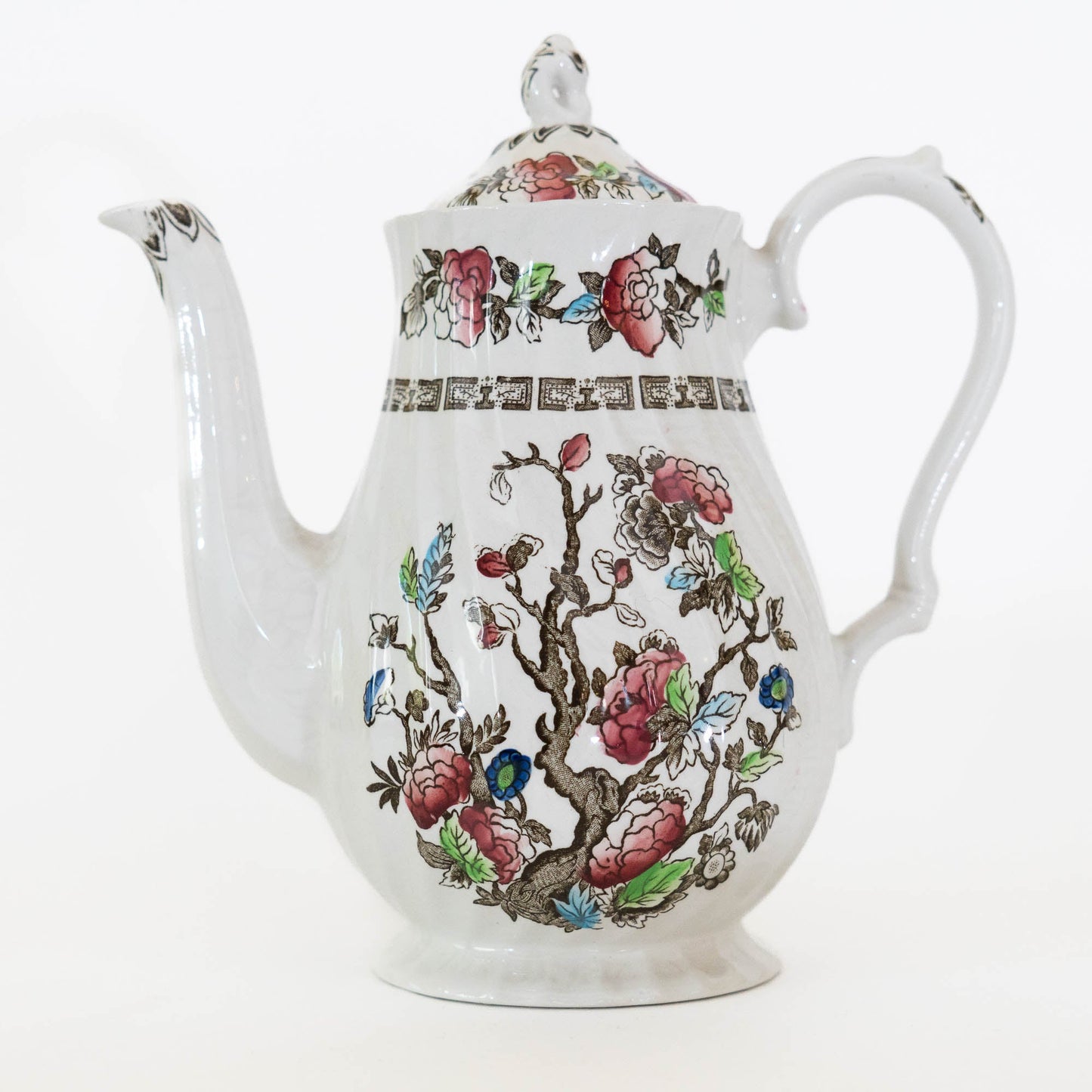
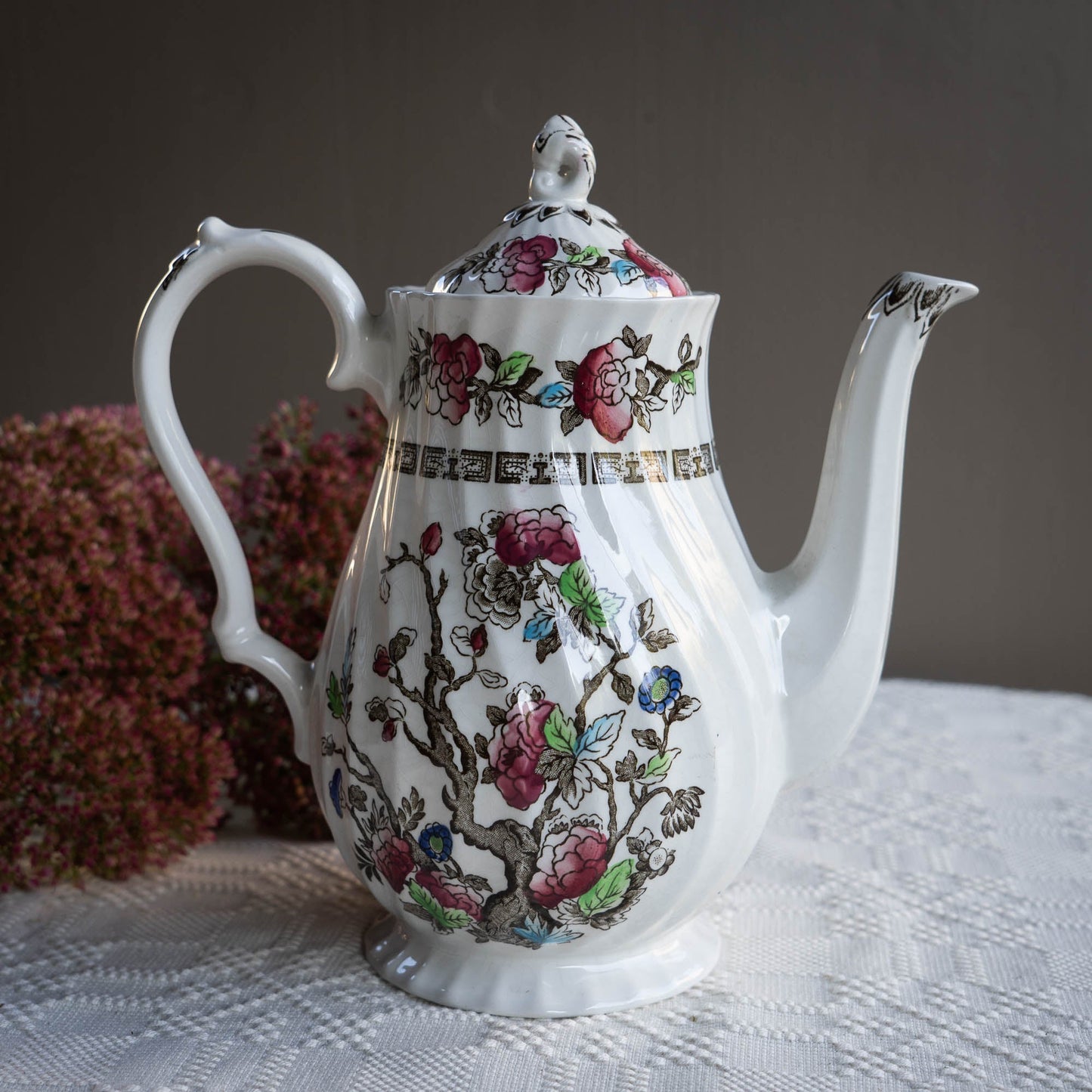
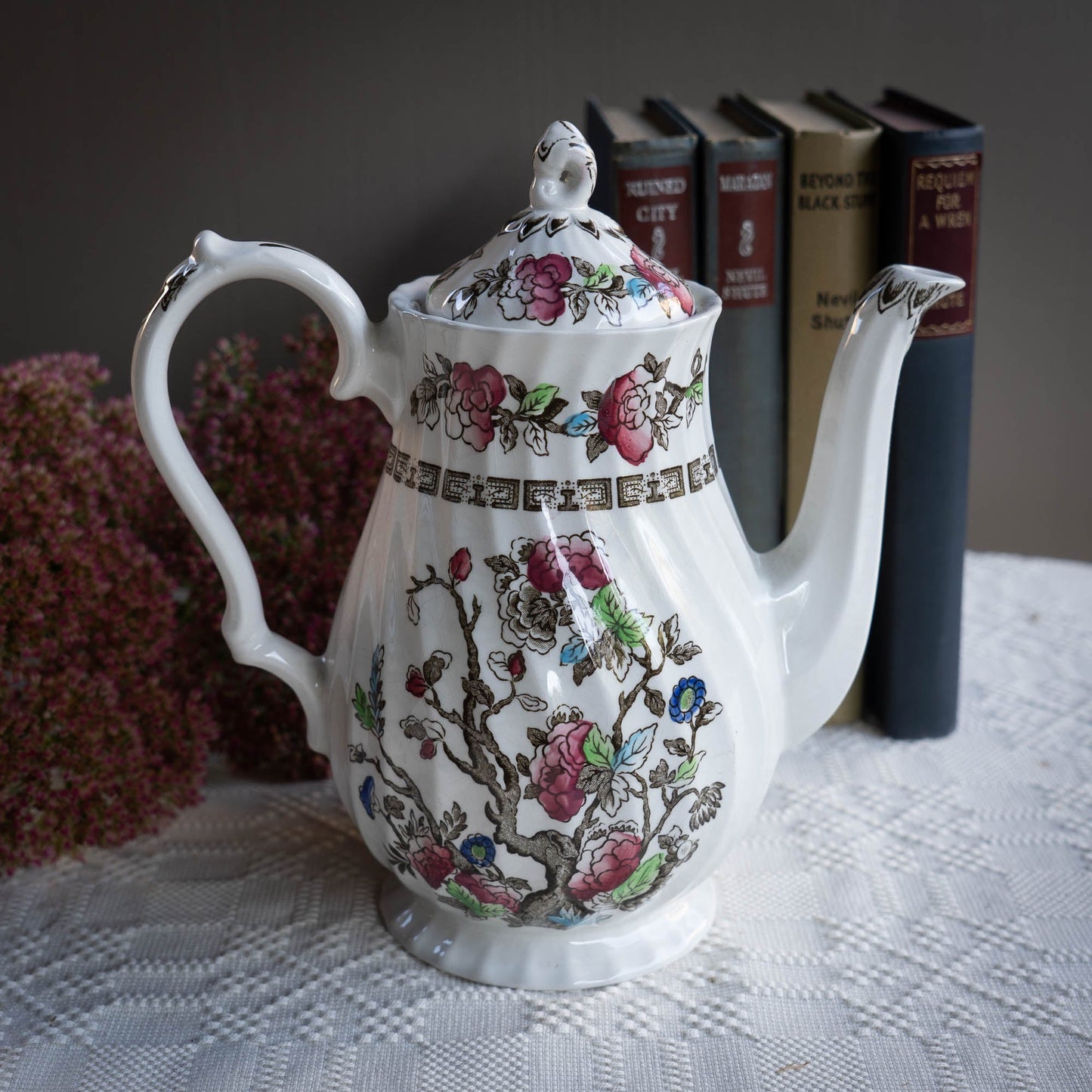
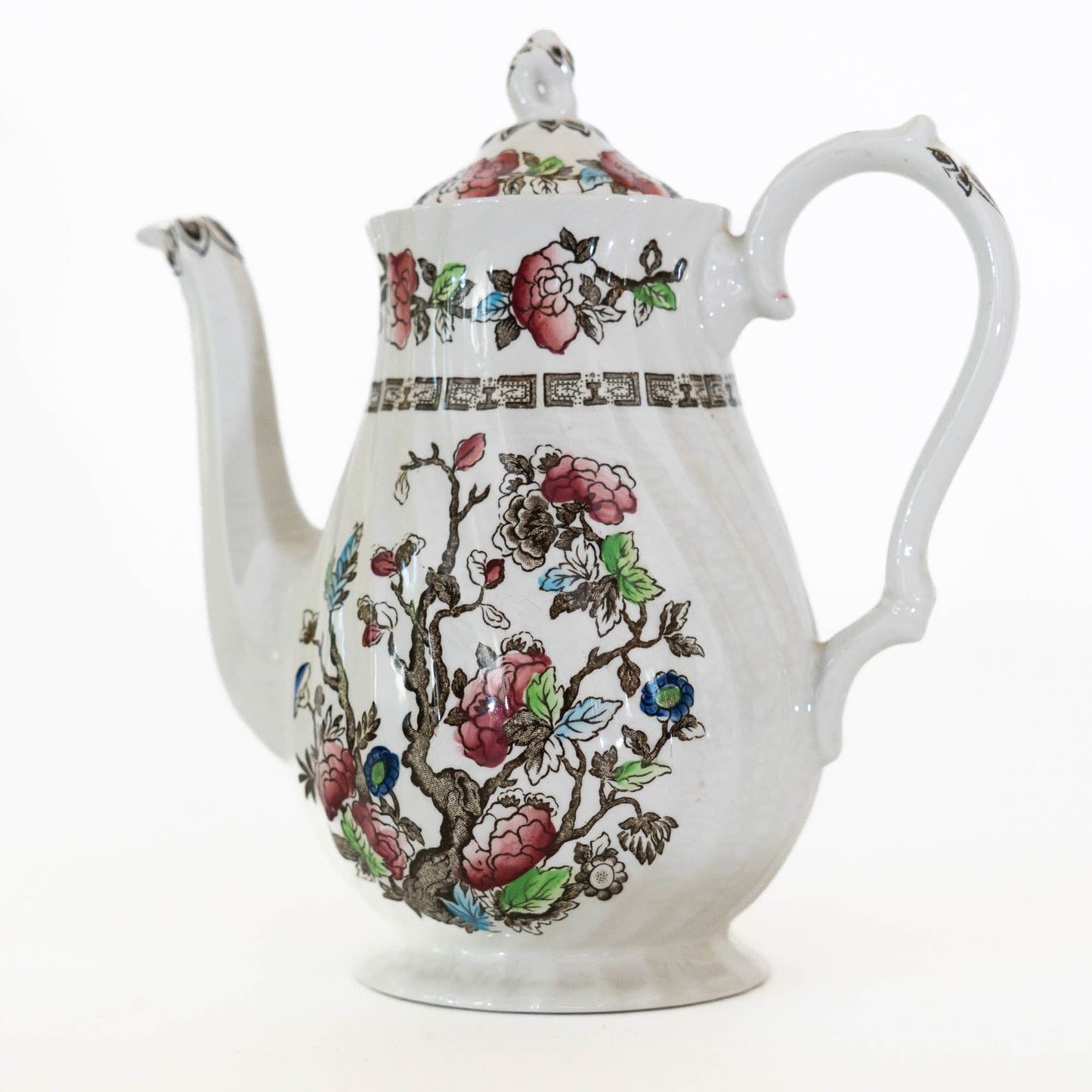
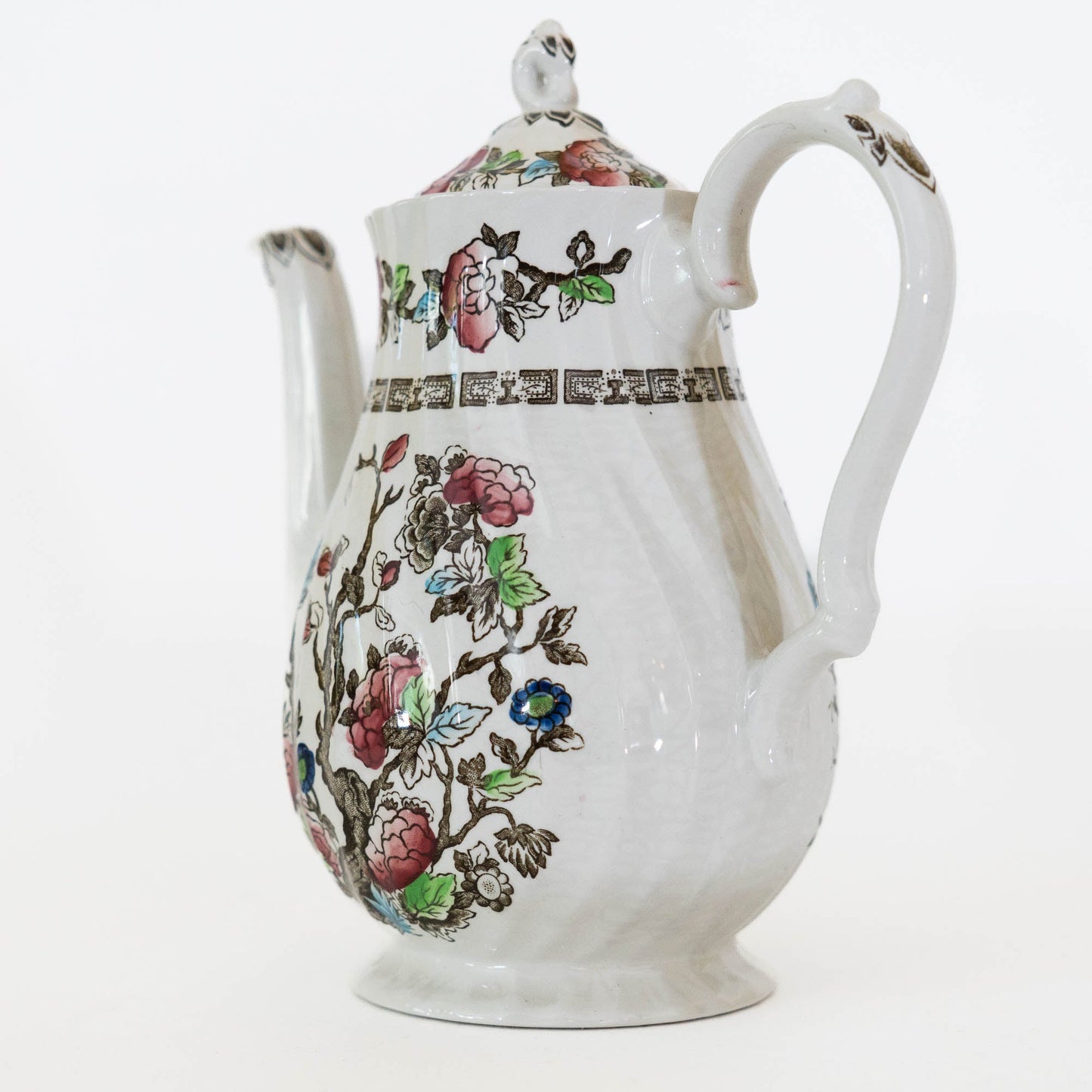
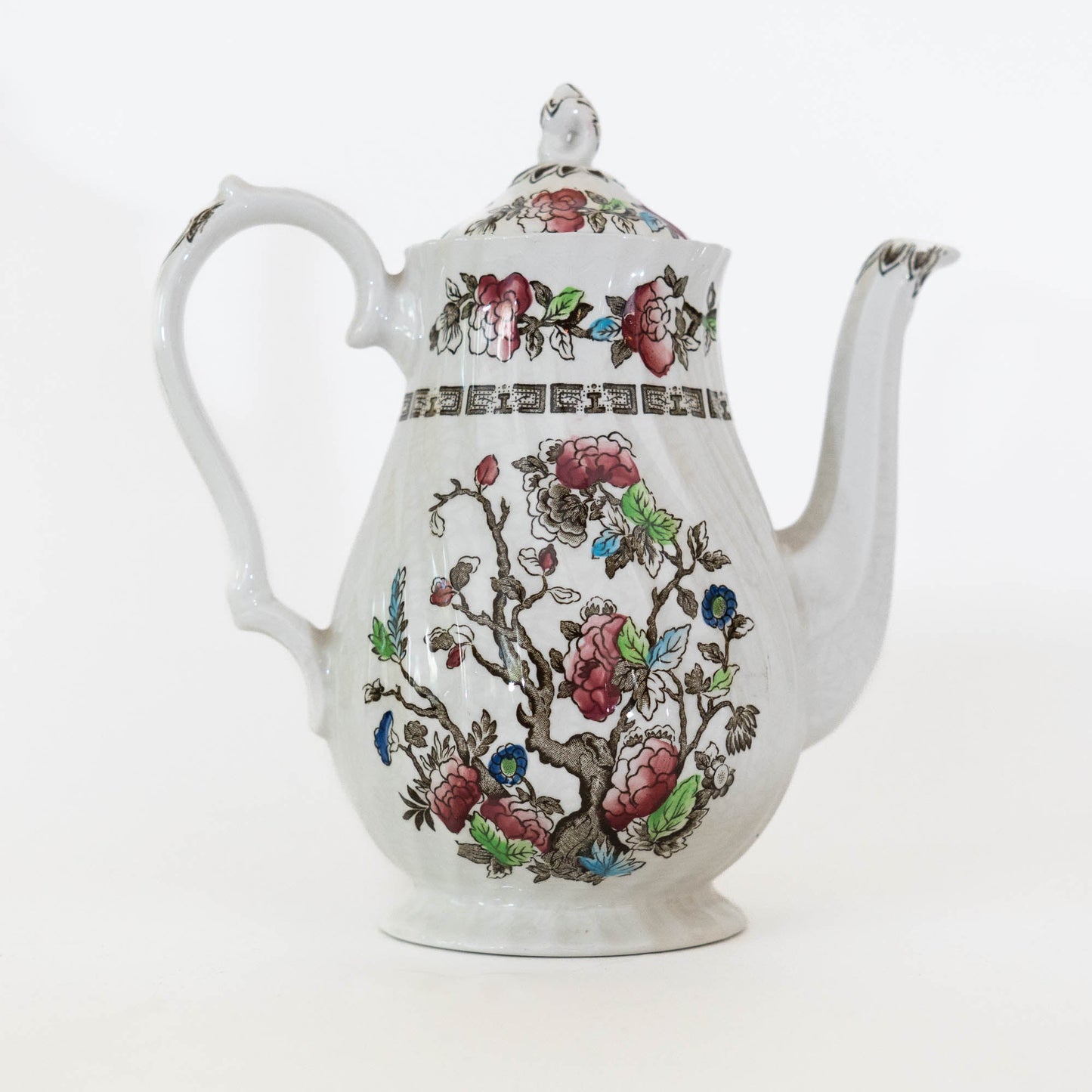
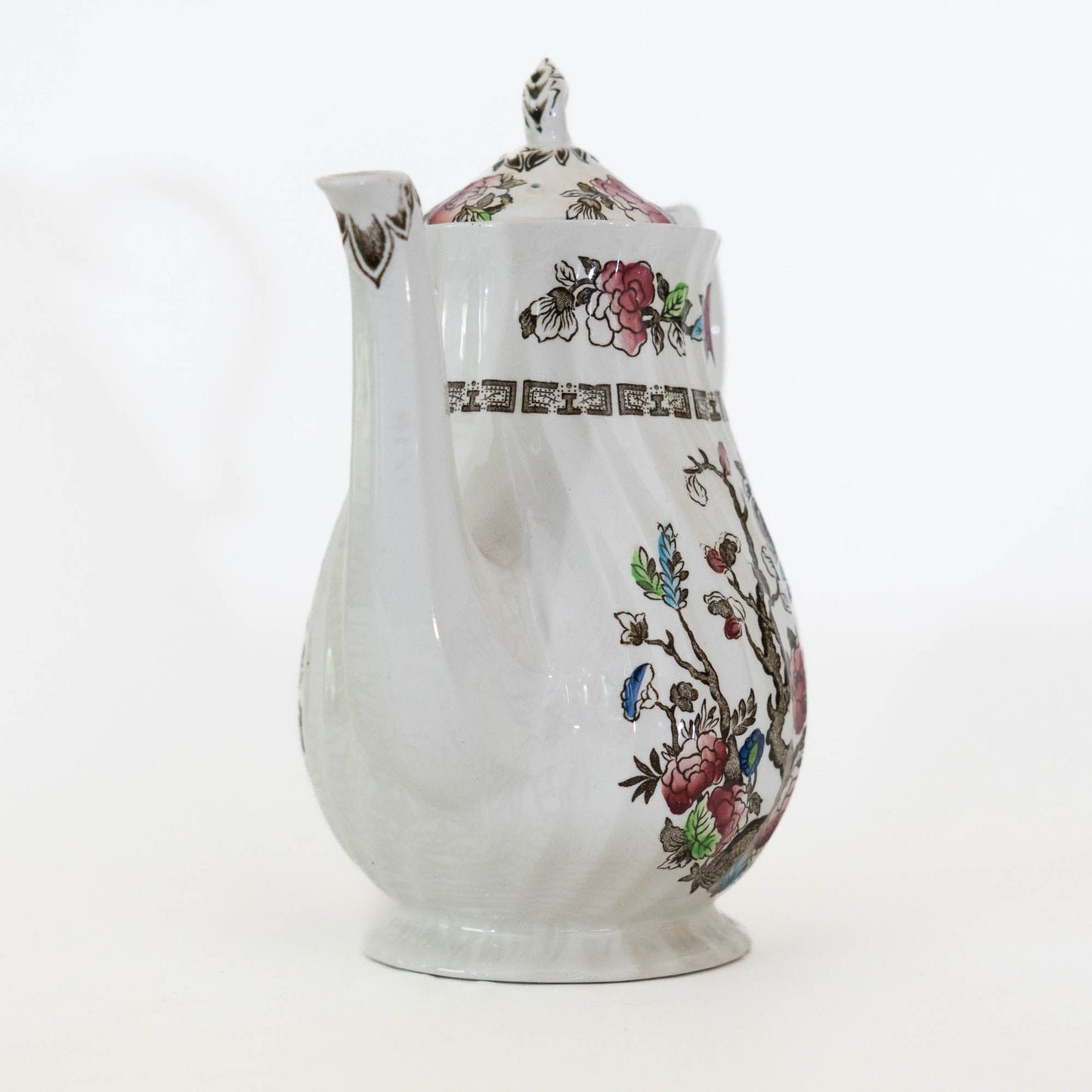
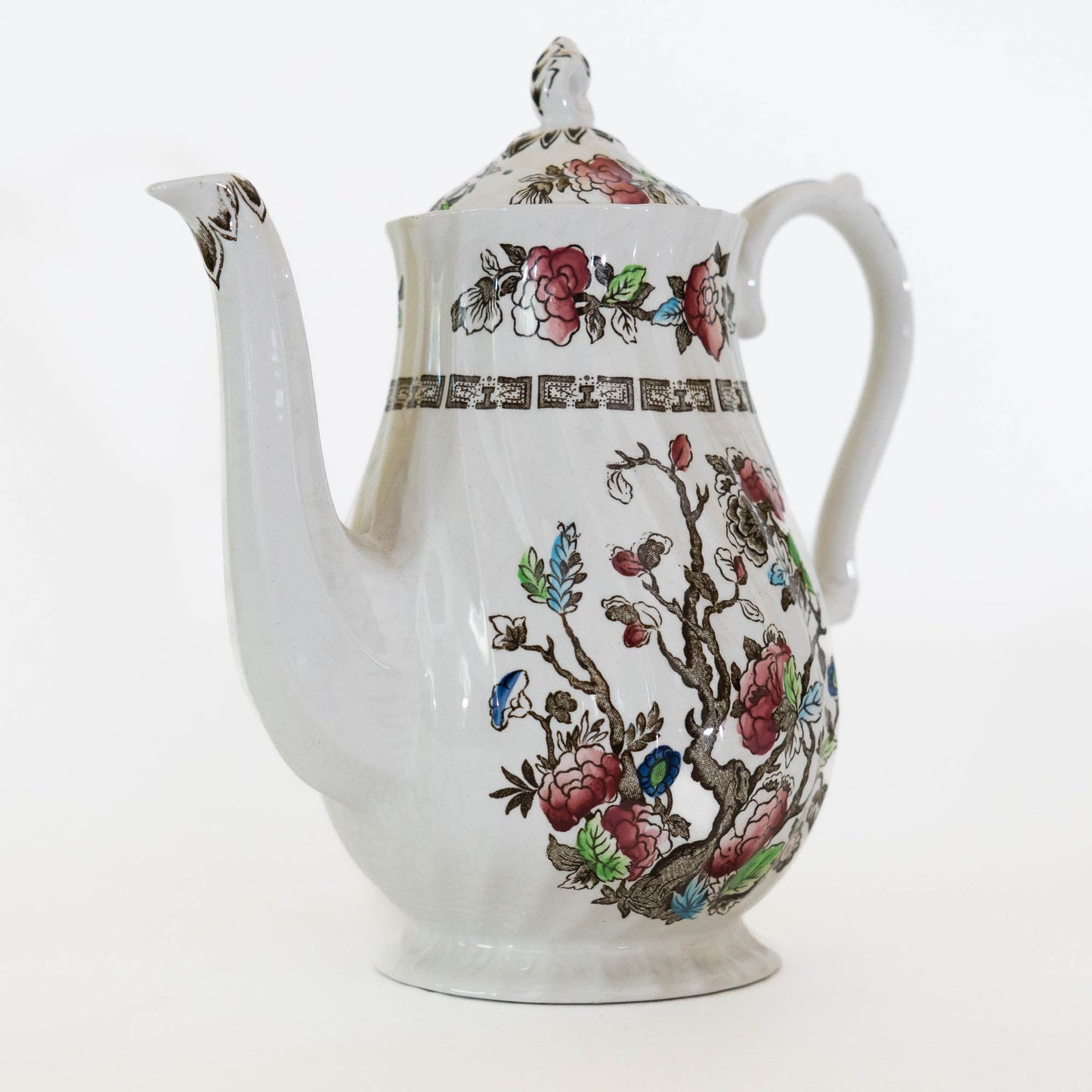
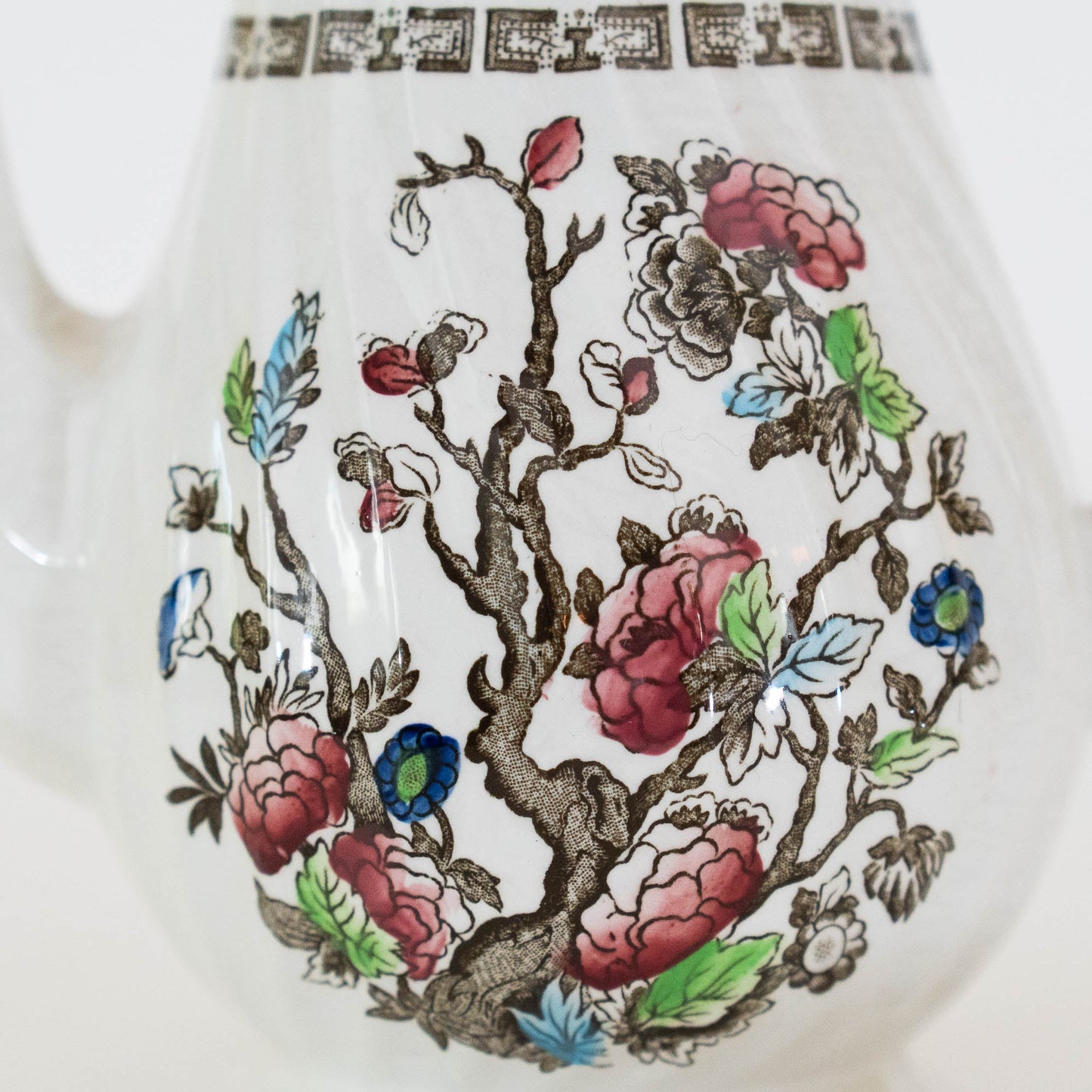
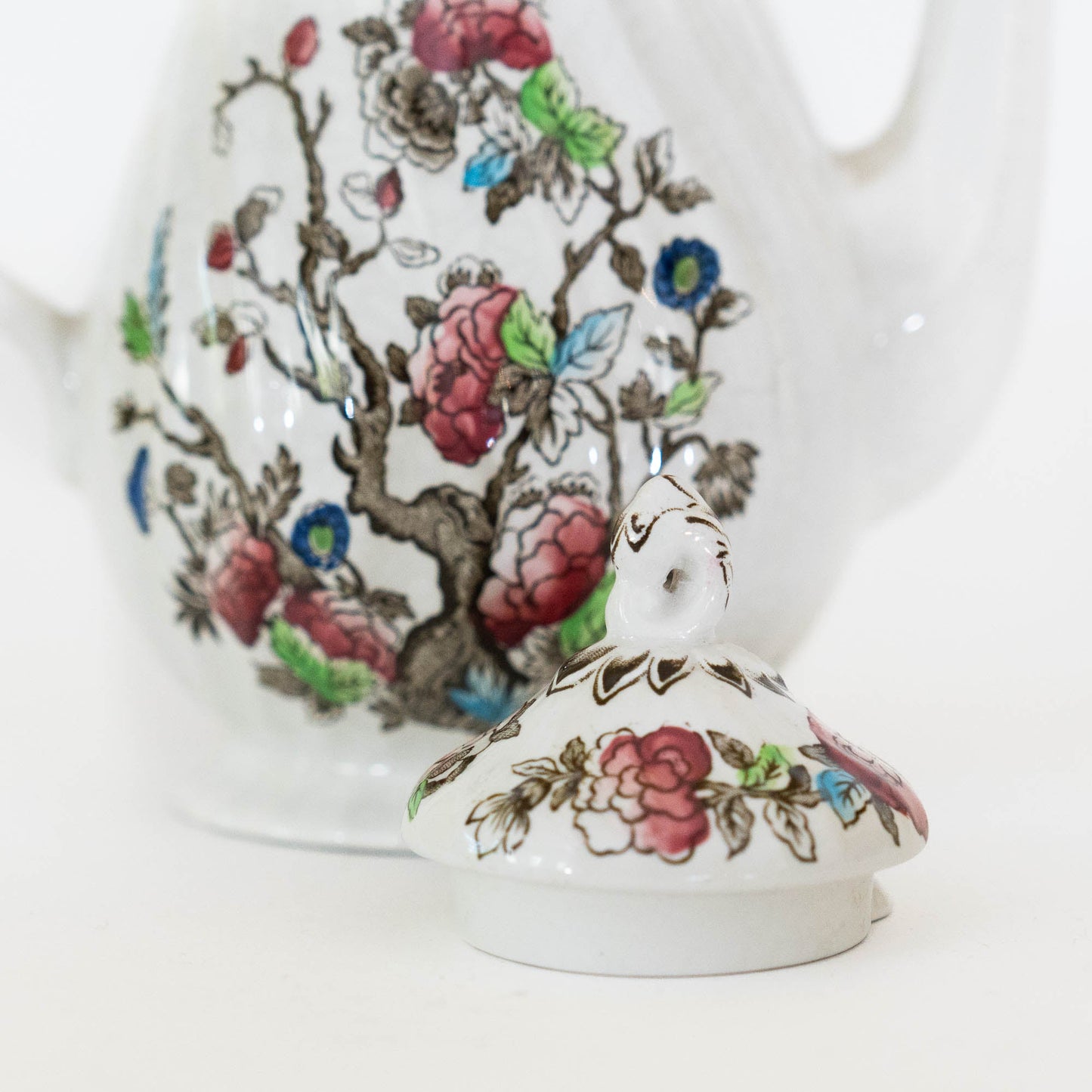
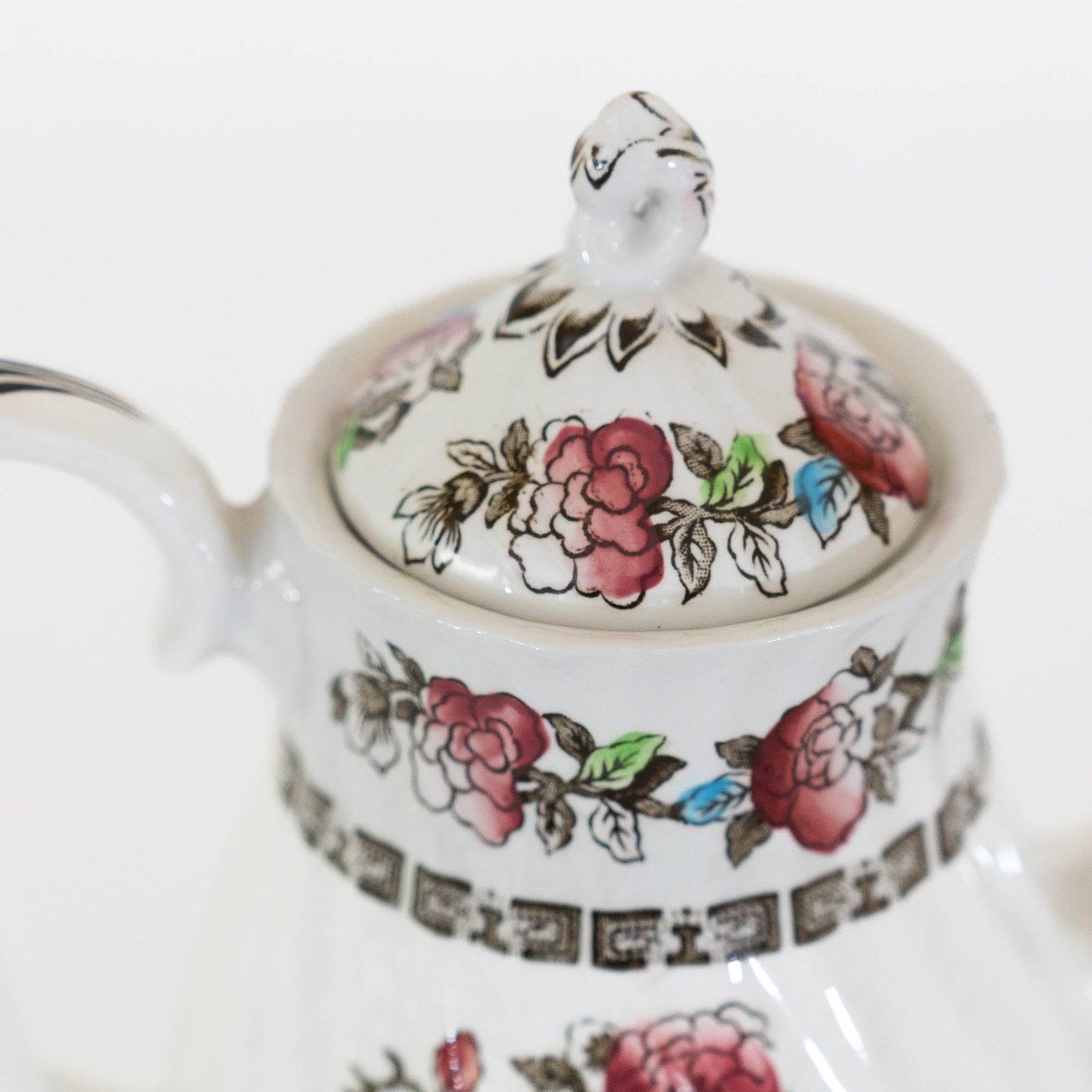
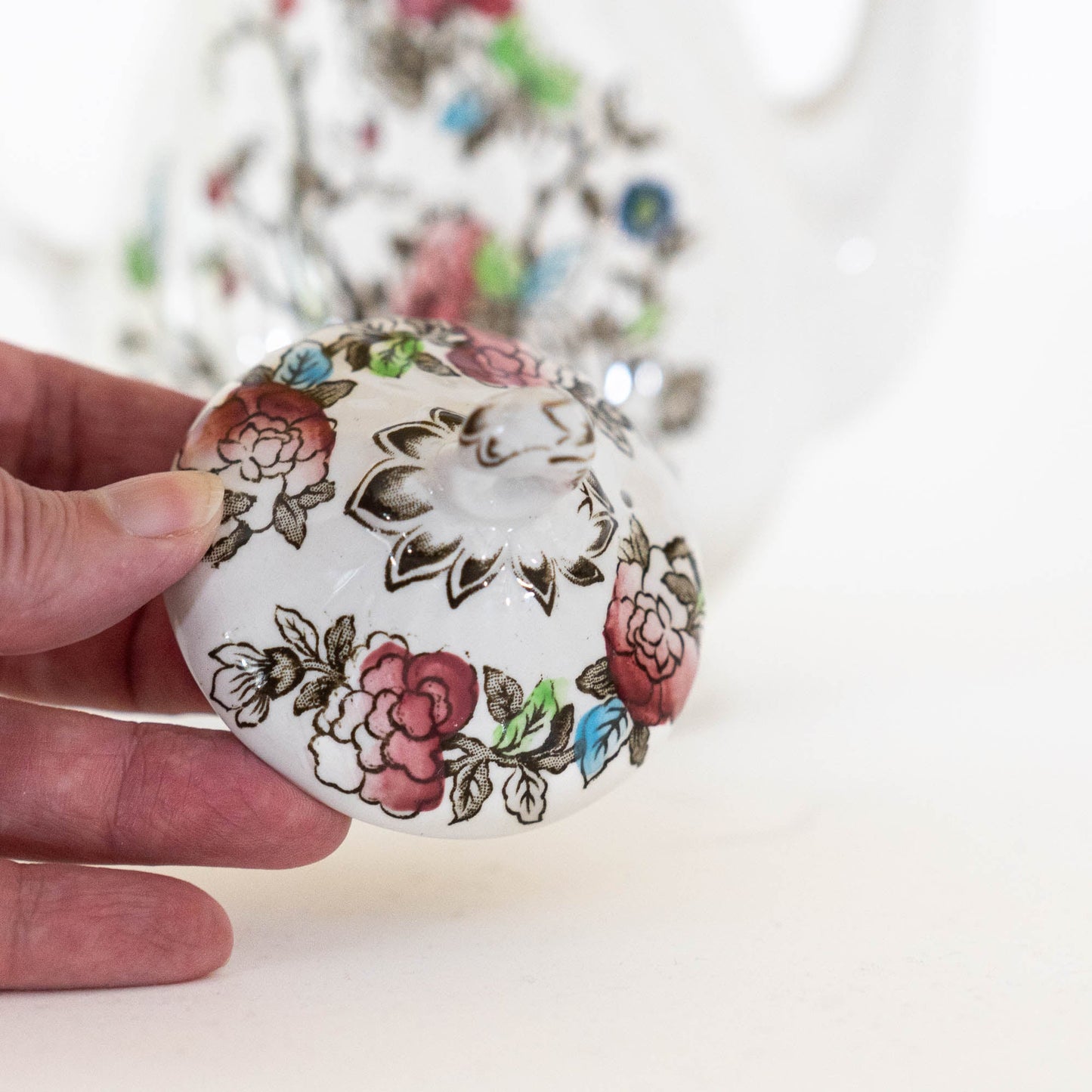
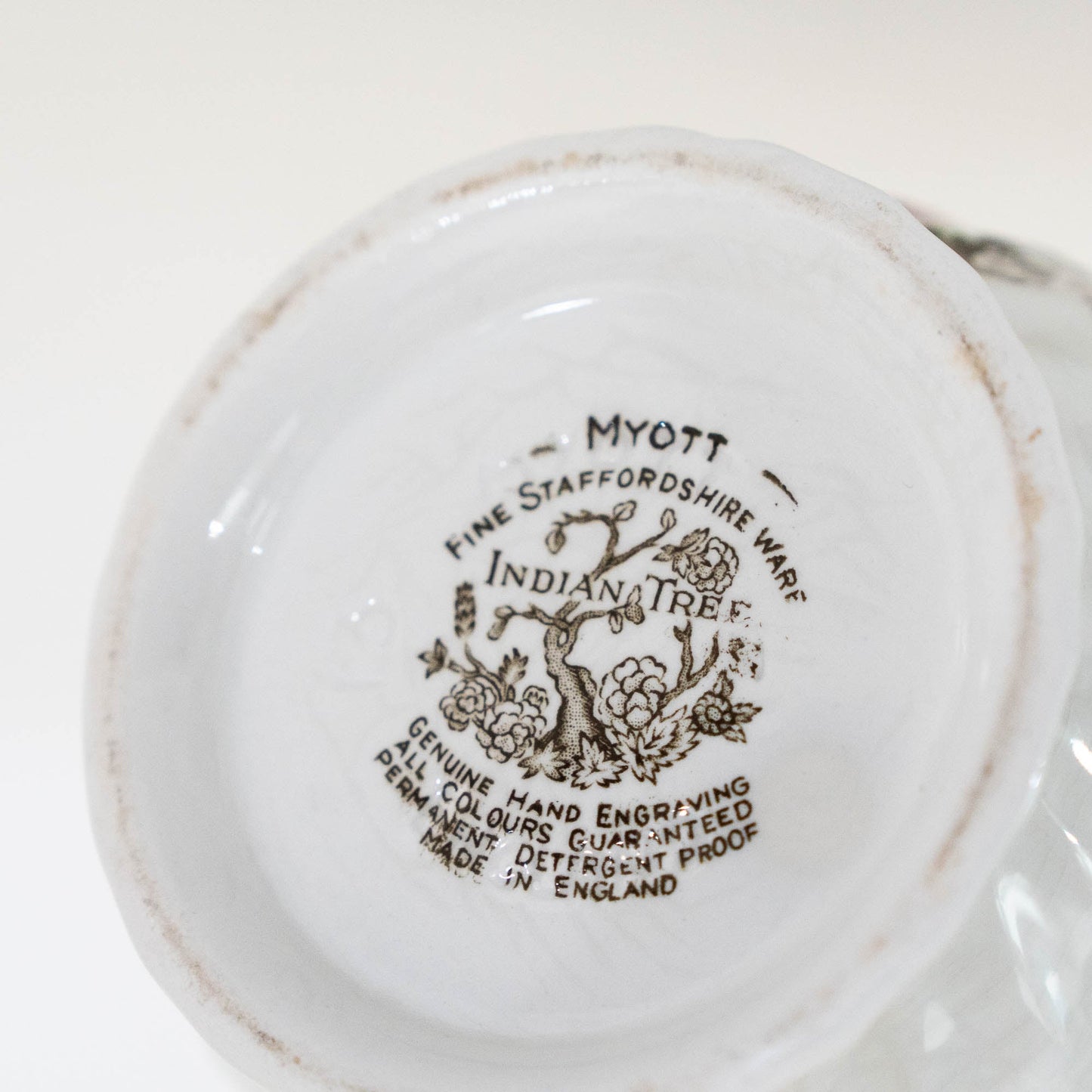
Origin & Maker
Founded in 1898 in Staffordshire, England, Myott, Son & Co. became a key player in the British pottery industry, known for producing affordable yet stylish ceramics. Based in the Stoke-on-Trent area, famous for its pottery heritage, Myott's designs became popular for their vibrant hand-painted patterns and accessible tableware.
The company is most famous for its Art Deco designs, particularly the "Myott Art Deco" line, which featured bold geometric patterns and bright colors. Another significant pattern in Myott's repertoire was the “Indian Tree,” inspired by traditional Asian designs and a favorite among collectors. The pattern, with its delicate floral motifs, added an exotic touch to British homes and became one of Myott's most recognizable creations.
Myott also produced other iconic designs like the “Imari” pattern, characterized by intricate Japanese-inspired motifs. The company continued its success well into the 20th century, eventually merging with Alfred Meakin Ltd in the 1970s. Despite changes in ownership, Myott's legacy endures, particularly for collectors seeking out its Art Deco pieces and “Indian Tree” pattern, which remain highly collectible for their historical and artistic significance.
Blog posts
View all-

A Serendipitous Morning at the Rue de Bretagne ...
There are few joys in life that match the thrill of stumbling upon a hidden treasure, and for me, flea markets hold that magical allure. One of my favourite flea...
A Serendipitous Morning at the Rue de Bretagne ...
There are few joys in life that match the thrill of stumbling upon a hidden treasure, and for me, flea markets hold that magical allure. One of my favourite flea...
-

Emile Bourgeois and "Le Grand Dépôt" in Paris
Recently, I found this stunning Sarreguemines wash set. It was at the Brocante in Belfort, France. On this day, we had got up at 4 AM to be there in...
Emile Bourgeois and "Le Grand Dépôt" in Paris
Recently, I found this stunning Sarreguemines wash set. It was at the Brocante in Belfort, France. On this day, we had got up at 4 AM to be there in...
-

The Legacy of Robert Haviland: A Journey from N...
The story of Robert Haviland porcelain is one of artistry, transatlantic ambition, and enduring heritage. It begins in the mid-19th century when David Haviland, an enterprising New Yorker, founded Haviland...
The Legacy of Robert Haviland: A Journey from N...
The story of Robert Haviland porcelain is one of artistry, transatlantic ambition, and enduring heritage. It begins in the mid-19th century when David Haviland, an enterprising New Yorker, founded Haviland...
















